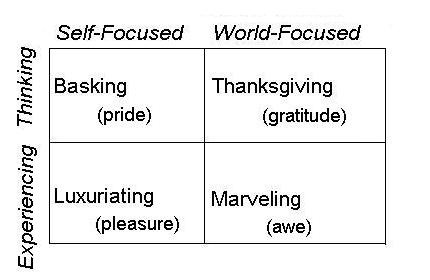Thanksgiving and science of happiness
*Note: Drag the email from “Promotional” folder into primary if you want to receive updates*
Dear friends and colleagues,
My heartfelt wish is for you to spend Thanksgiving with happiness. This year has been different – not everyone can spend the holiday with family.
I remember one year in college, when I couldn’t go home for thanksgiving. Everyone went home that year, but as an international student, I was stuck in Philly.
Feeling miserable, I ended up going to the diner Boston Market. I ordered a “thanksgiving special” – 2 turkey legs, a cup of mash potatoes and a biscuit – to eat alone in my dorm.
As I was ruminating on how unfair life was, a homeless old lady shouted at me, “Ma’am can you spare some change?”
Feeling like an ungracious human being, I gave her my mash potatoes and biscuit.
I spent the night skyping my parents while eating the remainder of my dinner. Thankful that I had a roof above me, food in my stomach, and a family who love me.
***
The Science of Happiness
Whenever I say Happy Thanksgiving or have a great weekend, I always feel that the message may seem trite. Can we train our brain to look for happiness and maintain it? Two concepts that helped me:
Concept #1: Reference Point = a standard against which all subsequent information is compared
One of annoying things of the human minds is that we do not think in absolutes, but in relative terms. For example in the below, which orange circle seem bigger?
We are living in unprecedented times never seen in history, where we are flooded with social comparisons 24/7. If surrounded by bigger images, we may feel smaller as a consequence. Our brains are not good at filtering the reference points.
Strategies to temper social comparison: Be aware of your reference points on social media, where everyone presents their best side, and how it affects your emotional health.
Concept #2: Hedonistic Adaptation = the process of becoming used to a positive or negative stimulus such as the emotion effects lower over time.
Savoring = the act of stepping outside of an experience to review and appreciate it. Savoring could help prolong the feeling of happiness.
Four Types of Savoring, Bryant & Veroff (2007)
During this Thanksgiving, you may be giving a lot of gratitude (which is shown to increase happiness). However, there are also other forms of savoring:
Basking: thinking about your best moments and being proud of how far you’ve come
Luxuriating: treating yourself, maybe with a luxurious bath
Marveling: actively experiencing great moments as they are happening.
Strategies that enhance savoring: Next time you experience something really wonderful, really get absorbed in the moment, to increase savoring and thwart hedonic adaptation (taking things for granted):
Talk to another person about how a great experience it is
Showing physical expression of energy
Don’t mind wander and don’t think about when it will be over
Think about how lucky you are to have the experience
Laugh and giggle
During this Thanksgiving and beyond, I hope you experience all the best moments of joy.
Stay happy,
Katherine





